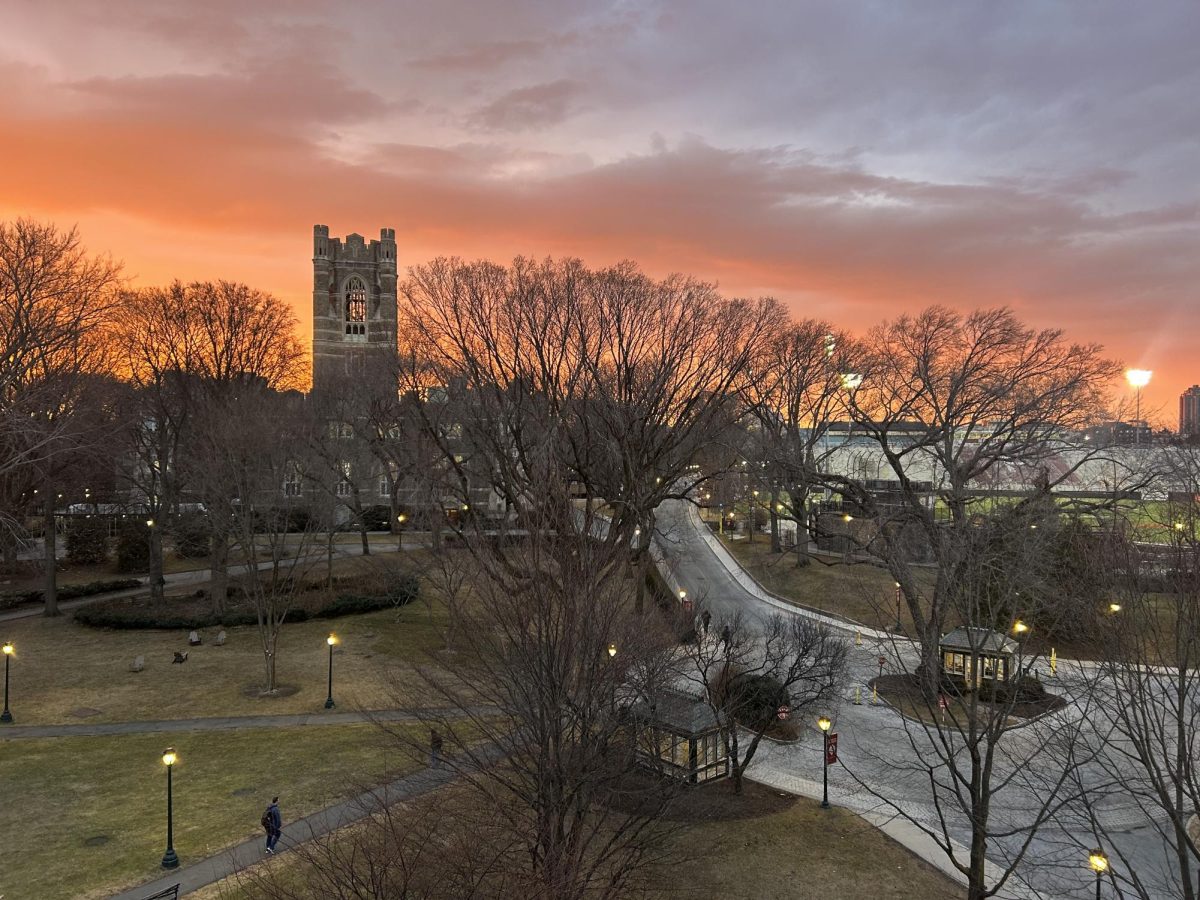By CONNOR RYAN

Soon after Pope Benedict XVI announced Monday that he would resign on Feb. 28, citing his advanced age and fading strength, many on Fordham’s Rose Hill campus joined the international community in disbelief.
“I was surprised,” David Birkdale, FCRH ’15, said on Monday after attending Holy Hour, a weekly Eucharistic adoration service in Our Lady’s Chapel. “I was upset because he’s been a great leader, but I understand that he’s been having health issues, and I trust his judgment.”
Benedict, 85, became pope in April of 2005 at the age of 78, making him the oldest cardinal to be elected in roughly 300 years, according to the Associated Press. He is the first pope to resign in six centuries.
“It seems that the historic decision revealed to the world this day is but a further reflection of the wisdom and humility that has marked the life of this holy man of God,” Joseph G. Quinn, vice president for Mission and Ministry, said in an email on Monday.
Unlike most interviewed, Quinn said that Benedict had subtly hinted toward his resignation in the past, making Monday’s announcement not particularly surprising.
“Many times over the years, he quietly indicated that he would take the drastic step of stepping aside from the papacy if he felt it was needed or necessary to advance the life of the Church he loved and served all his life,” Quinn said.
Rev. Philip Florio, S.J., director of Campus Ministry, described the pope’s resignation as “courageous and prudent.”
“I think he is one of the most brilliant popes as far as being a pastoral theologian — he’s a wonderful, world-renowned theologian, and I think he truly understands that to lead the church you have to be in your best physical shape, emotional shape and spiritual shape,” Florio said in a phone interview. “His body is failing him, and he doesn’t want to fail the church.”
Soon after the announcement was made, media outlets across the globe dashed to interview experts, weave analysis and upload stories online.
Reporters from a variety of news sources including WNYC, CBS, NBC, ABC, The New York Post, The New York Daily News, NPR and 1010WINS reached out to Fordham on Monday for comment, according to Bob Howe, director of Communications.
Rachel Donadio of The New York Times reported Monday that Benedict’s age had become more apparent in recent months, citing specifically how the pope appeared “to doze off” during Midnight Mass on Christmas Eve.
Mike Prescia, FCRH ’14 and marketing director and conference coordinator of Fordham’s Respect for Life club, said that he has noticed Benedict’s health decline.
“I went to World Youth Day in Madrid in 2011, and he seemed a little weaker, but I think if he knows in his heart that this is the right thing to do, and it’s going to be better for the Catholic faith, then it’s the right thing to do,” Prescia said.
Rev. Federico Lombardi, the Vatican’s spokesman, said Monday that a successor would hopefully be elected by Easter, according to The New York Times.
Top contenders to replace Benedict include Cardinal Marc Ouellet, the Canadian head of the Vatican’s office for bishops, Cardinal Christoph Schönborn, the archbishop of Vienna, and Cardinal Angelo Scola, archbishop of Milan, according to the Associated Press.
When asked who he believed would be the next pope, Florio said that at this point it was difficult to say.
“I think if we learned anything from Benedict’s papacy, no one predicted that he would be the pope,” Florio said. “So at this point in my life, I would say I have no idea — it’s truly, truly in God’s hands in that regard.”
Benedict’s announcement came just two days before the start of Lent.
Rev. Joseph M. McShane, S.J., president of the University, declined to comment for this article.
John Bonazzo contributed reporting.



































































































































































































